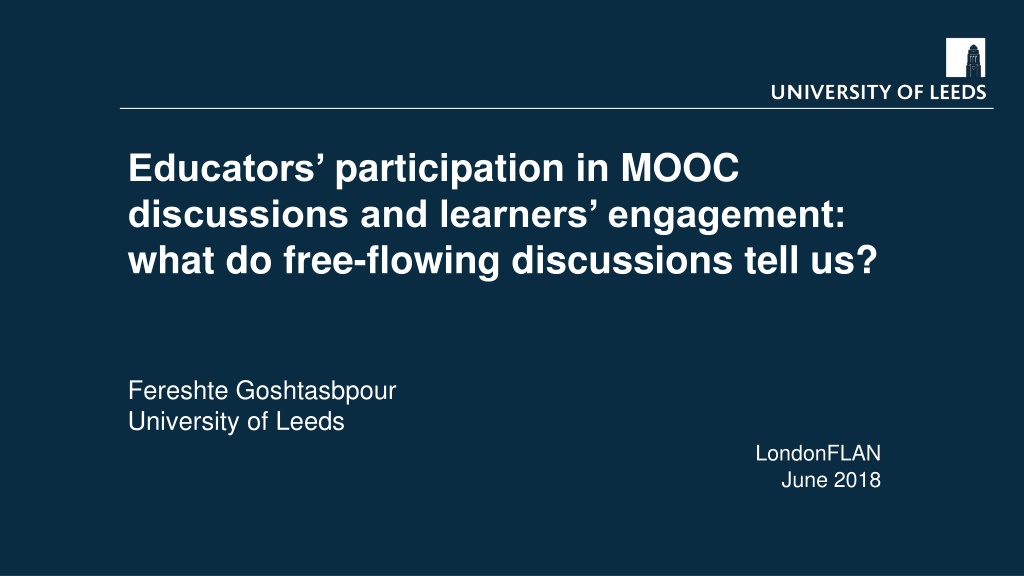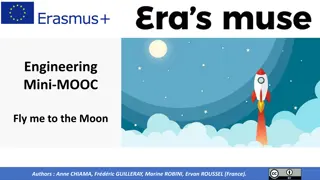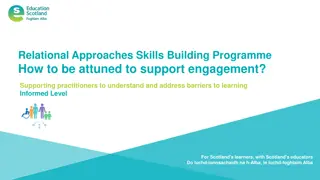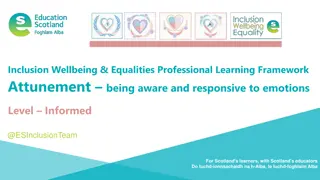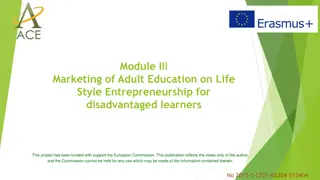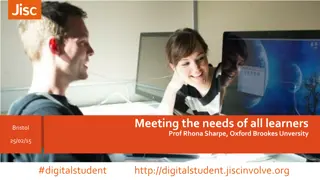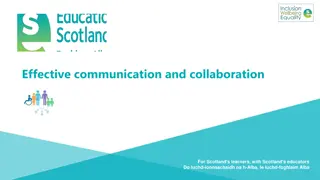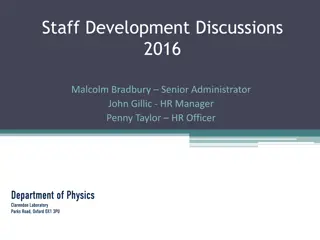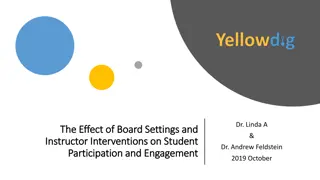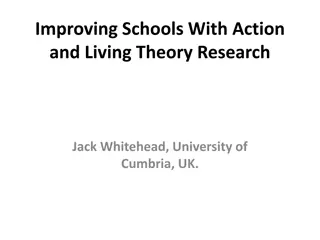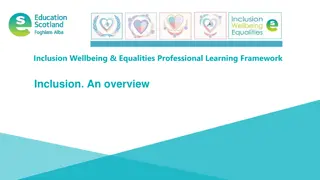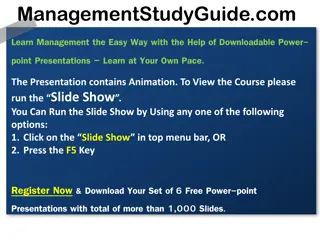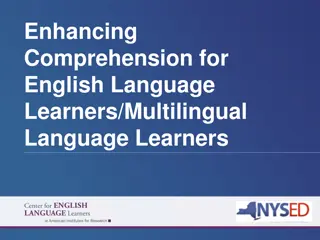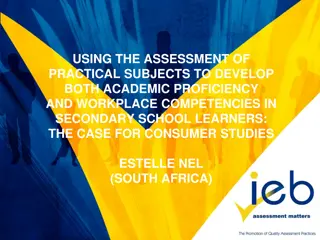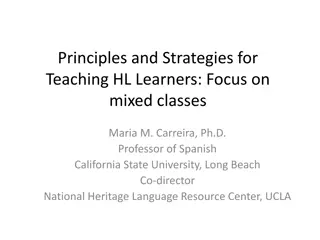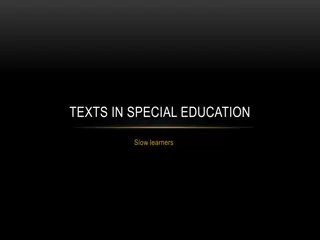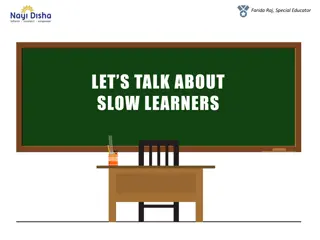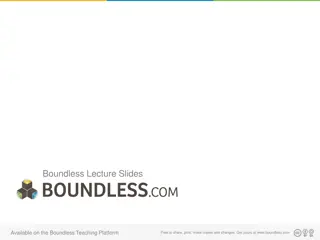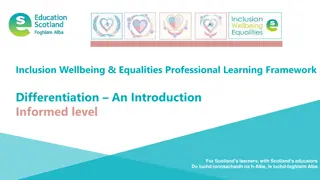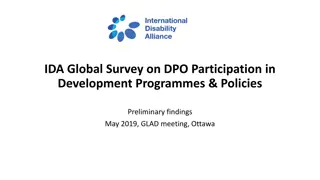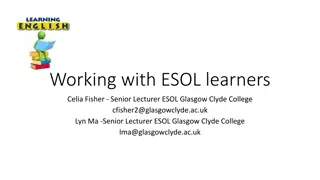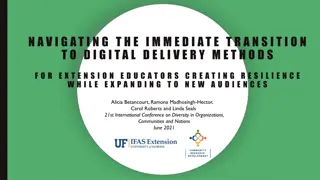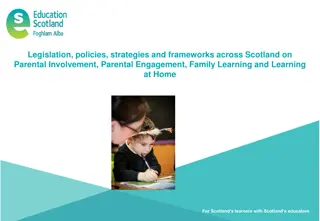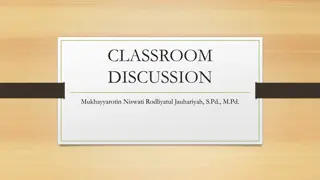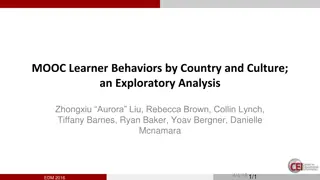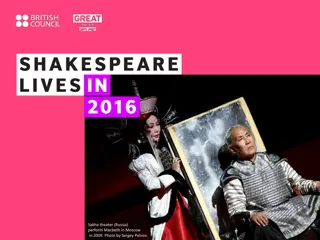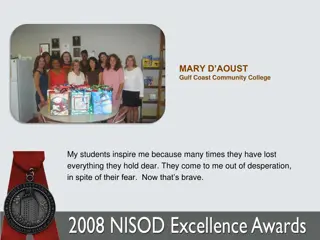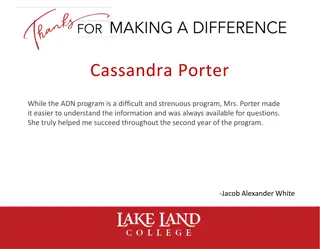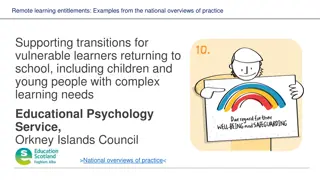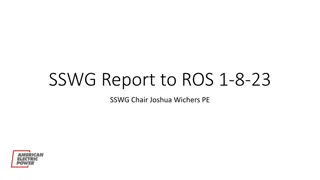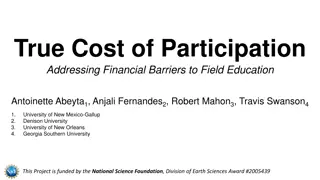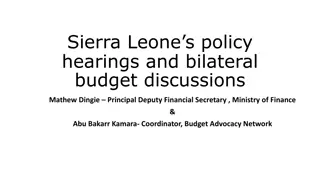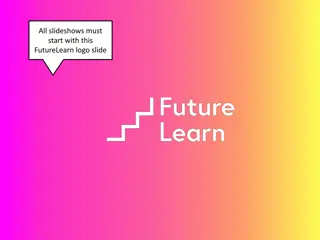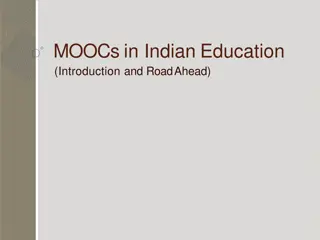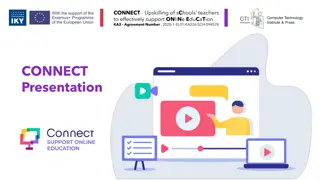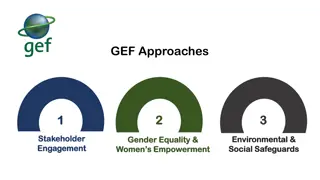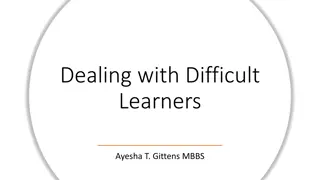Educators' Participation in MOOC Discussions: Impact on Learners' Engagement
Analysing educators' contributions in MOOC discussions based on the Community of Inquiry framework reveals varied types of participation such as cognitive, social, and teaching presence. Changes over time show shifts in engagement levels at different stages of MOOCs. Lead educators, mentors, and educators play distinct roles, influencing the dynamics of interaction. Learners engage differently with educators, displaying explicit and implicit forms of engagement.
Download Presentation

Please find below an Image/Link to download the presentation.
The content on the website is provided AS IS for your information and personal use only. It may not be sold, licensed, or shared on other websites without obtaining consent from the author. Download presentation by click this link. If you encounter any issues during the download, it is possible that the publisher has removed the file from their server.
E N D
Presentation Transcript
Educators participation in MOOC discussions and learners engagement: what do free-flowing discussions tell us? Fereshte Goshtasbpour University of Leeds LondonFLAN June 2018
Research Questions 1. How are educators contributions to discussions in Massive Open Online Course (MOOC) characterised based on the Community of Inquiry framework? a. To what extent and in what ways do educators contribute to MOOC discussions? b. How do the level and type of their contributions change over time? c. What prompts educators to contribute to MOOC discussions? 2. What roles do educators play in learning by contributing to MOOC discussions? 3. To what extent and in what ways do learners engage with educators contributions?
Research Design Type of contributions Qualitative content analysis of 818 conversations between learners and educators based on the Community of Inquiry Framework Level of contributions Number of conversations educators contributed to Changes over time Variations in the type and level of contributions over the course of a MOOC (1) Engagement by both liking and responding to an educator s comment (2) Engagement by responding to an educator s comment (3) Engagement by liking an educator s comment (4) No engagement Learners engagement with educators contributions
Findings: Types of contributions Cognitive Presence 4% (n=101) Social Presence 56%, (n=1326) Teaching Presence 40% (n=938)
Findings: Changes over time 100% 3% (n=42) 5%(n=30) 7%(n=29) 90% 80% 36% (n=486) 46% (n=269) 44% (n=183) 70% 60% 50% 40% 61% (n=839) 30% 49% (n=287) 49% (n=200) 20% 10% 0% Beginning of MOOCs Middle of MOOCs End of MOOCs Social Presence Teaching Presence Cognitive Presence
Lead Educators Educators Mentors Social Presence 34% 23% 43% Teaching Presence 34% 37% 29% Cognitive Presence 32% 38% 30%
Learner 1 Learner 2 Educator Learner 2
Research Design Explicit and implicit Engagement Implicit engagement no engagement
No Engagement
Findings 47% Explicit and implicit Engagement 19% (n=152) 13% (n=106) 15% (n=120) Implicit engagement 54% (n=54) no engagement
Findings Teaching roles Lead educators Educators Mentors Total Liked and responded N % 50 64 38 152 Only Only Liked No Responded N % 33 43 30 106 Engagement N % 139 110 191 440 N % 29 45 46 120 33 42 25 19 31 41 28 13 24 38 38 15 32 25 43 54
Liked and Responded Only responded Only liked No engagement A variety of conversation lengths A variety of conversation lengths Short (85%), medium (12%), long (2%) Mainly short conversations (99%) All short conversations Short (73%), medium (22%), long (4%) no instances in long exchanges Mainly pedagogical comments A balance of pedagogical and social comments A combination of social and pedagogical comments, but social comments are predominant nearly the same combination as only liked postings, but there is a qualitative difference learners like and respond to educators comments more than postings made by mentors or lead educators learners tend to respond to educators more than mentors and lead educators learners engaged with educators and mentors postings equally and at a higher level than they engaged with the lead educators contributions mentors comments are the least attractive to learners, while educators postings indicate the lowest percentage of learners non-engagement
Summary Learners engage with 47% of educators overall comments. They engage with educators more than lead educators and mentors. Comments made by mentors are least attended by learners. They show a higher level of engagement when educators comments are pedagogical ( providing direct instruction or facilitates the discourse)
Thank you Fereshte Goshtasbpour edfg@leeds.ac.uk @GFereshte
